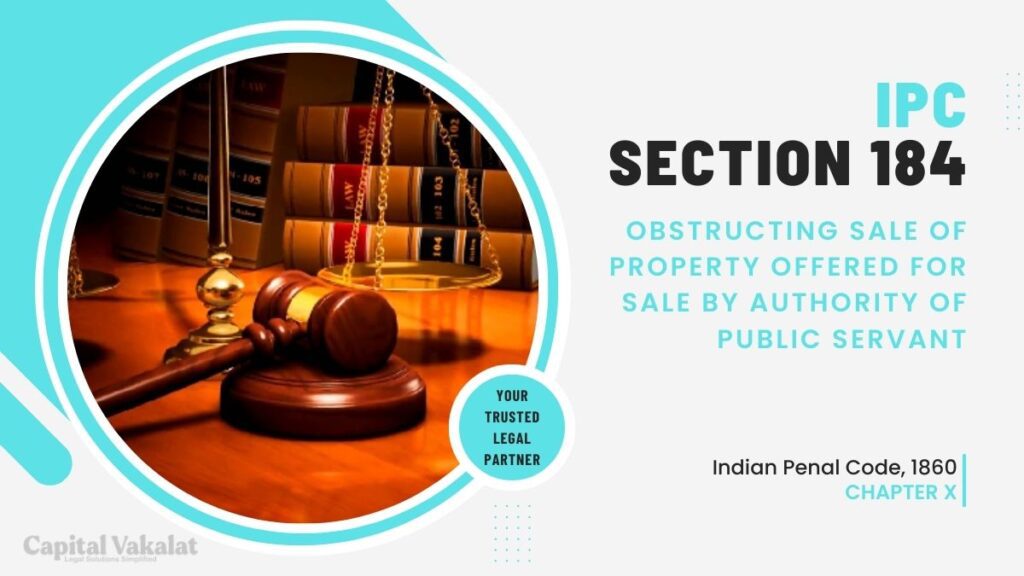In the intricate legal framework of India, Section 184 of the Indian Penal Code (IPC) holds significant importance, primarily concerned with obstructing the sale of property offered for sale by the authority of a public servant.

This provision plays a pivotal role in maintaining law and order within the country.
Introduction
Section 184 of the IPC deals with offenses related to property sales conducted under the authority of a public servant. It encompasses a wide range of situations where obstructing the sale of such properties can lead to severe legal consequences.
Understanding Section 184 IPC
What is Section 184 IPC?
Section 184 IPC is a legal provision that makes it a criminal offense to obstruct the sale of property authorized by a public servant. This could involve land, buildings, or any other form of property that the public servant has the authority to sell.
Legal Consequences
Obstructing the sale of property authorized by a public servant is a grave offense. Offenders may face imprisonment and hefty fines. The severity of the punishment depends on the nature of the obstruction and the extent of damage caused.
The Role of Public Servants
Public servants play a crucial role in the implementation of Section 184 IPC. They are responsible for ensuring that the sale of property under their authority is conducted smoothly and without any hindrance.
Instances of Obstruction
Real-life Examples
There have been numerous instances where individuals have obstructed the sale of property authorized by a public servant. These cases often result in legal battles, highlighting the importance of this provision in safeguarding public interest.
Significance of Section 184 IPC
This section is not just about property rights; it’s about maintaining the rule of law. By preventing obstructions in the sale of properties authorized by public servants, it ensures that the legal process is upheld.
How to Avoid Legal Troubles
Citizens should be aware of the legal implications of obstructing such property sales. To avoid legal troubles, it’s important to cooperate with public servants and follow due process.
Cases and Precedents
Notable Court Cases
Several court cases have set precedents in the interpretation and application of Section 184 IPC. These cases serve as valuable references for understanding the nuances of the law.
Challenges in Implementing the Section
The implementation of Section 184 IPC is not without challenges. Legal complexities and disputes often arise, making it essential for all parties involved to have a clear understanding of their rights and responsibilities.
Protecting Public Interest
The essence of Section 184 IPC lies in safeguarding public interest. By ensuring that properties authorized for sale by public servants are transferred to deserving parties, it maintains transparency and justice.
Conclusion
In conclusion, Section 184 IPC plays a pivotal role in maintaining order and justice in the property market. Obstructing the sale of property authorized by a public servant can lead to severe legal consequences, making it imperative for citizens to be aware of the law’s provisions and implications.
Frequently Asked Questions
What are the legal consequences of obstructing such property sales?
Offenders may face imprisonment and hefty fines, depending on the nature of the obstruction.
How can citizens avoid legal troubles related to Section 184 IPC?
To avoid legal troubles, citizens should cooperate with public servants and follow due process during property sales.
Why is it important to protect public interest in property sales?
Protecting public interest ensures fairness and justice in property transactions, maintaining transparency in the process.